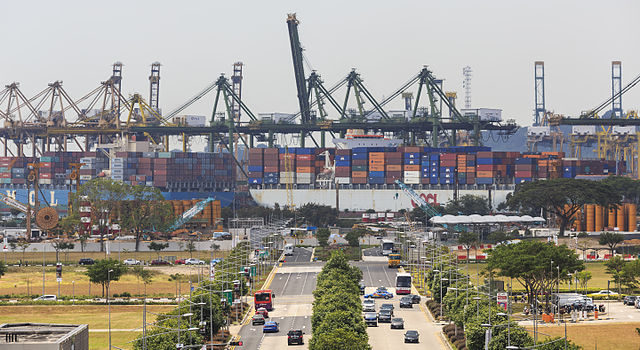Singapore Customs is reminding traders and importers of goods into Singapore to comply with the Customs Act, the Goods and Services Tax (GST) Act, the Regulation of Imports and Exports Act, and other relevant legislation to avoid fine, imprisonment, or both.
In Circular No: 05/2017 issued April 11, 2017, the agency said all goods imported into Singapore must pay GST. In addition, customs and excise duties should be paid for the importation of these dutiable goods: intoxicating liquors, tobacco products, motor vehicles, and petroleum products.
If a Customs permit is required for the importation of goods, the importer or agent must ensure that all information in the customs permit application is true and correct, and complies with the permit conditions issued in the permits.
For the import of controlled goods, licenses from relevant authorities (e.g. Health Sciences Authority, Agri-Food & Veterinary Authority of Singapore) may be required. “Please ensure that the correct HS codes and product codes are declared in the Customs permit application,” said the customs agency.
Moreover, the importer or his or her agent is required to keep documents and records relating to the purchase, import and sale of the goods for at least five years from the date on which the goods are released for import or GST/duty payment.
The circular also cited examples of non-compliance, which include non-declaration of goods; under-declaration of the CIF value of goods; failure to take up a customs permit for goods imported by air where the total CIF value exceeds SGD400; shipment of excess goods; and importation of controlled goods without obtaining the required licenses from the relevant authorities.
Other forms of non-compliance include importation of counterfeit goods which infringe intellectual property rights; smuggling of dutiable goods such as cigarettes and intoxicating liquors; using generic description of goods and lumping of different goods of different classifications under a single HS code in the permit application; and omission of insurance and freight charges when declaring the CIF value to Singapore Customs.
In addition, the circular encourages importers and agents to “look out for tell-tale signs of smuggling of contrabands or under-declaration of the CIF value of goods when importing goods.”
Among these signs are items with compartments or cavities which can be used to conceal contrabands; non-existent delivery address, last-minute change in delivery address, request for delivery to a location which is not a proper residential or business unit (e.g. void decks); and highly insured shipments declared with low values.
Also red flags are heavy and bulky shipments declared with low values, especially when the CIF value declared is even lower than the freight charges, and luxury or high-value items declared with low values.
Finally, the memo urged traders and declaring agents to self-disclose their past errors and omissions.
“Voluntary disclosures of non-compliance by traders and declaring agents [will] be taken into consideration when Singapore Customs decides on the follow-up actions and/or penalties,” it added.
Failing to make a declaration and submitting an incorrect declaration “are offences and a person guilty of failing to make a declaration or making an incorrect declaration under the Customs Act is liable on conviction to a fine of up to S$10,000 or the equivalent amount of duty and GST payable, whichever is higher, and/or imprisonment for up to 12 months,” said the agency.
Photo: CEphoto, Uwe Aranas









